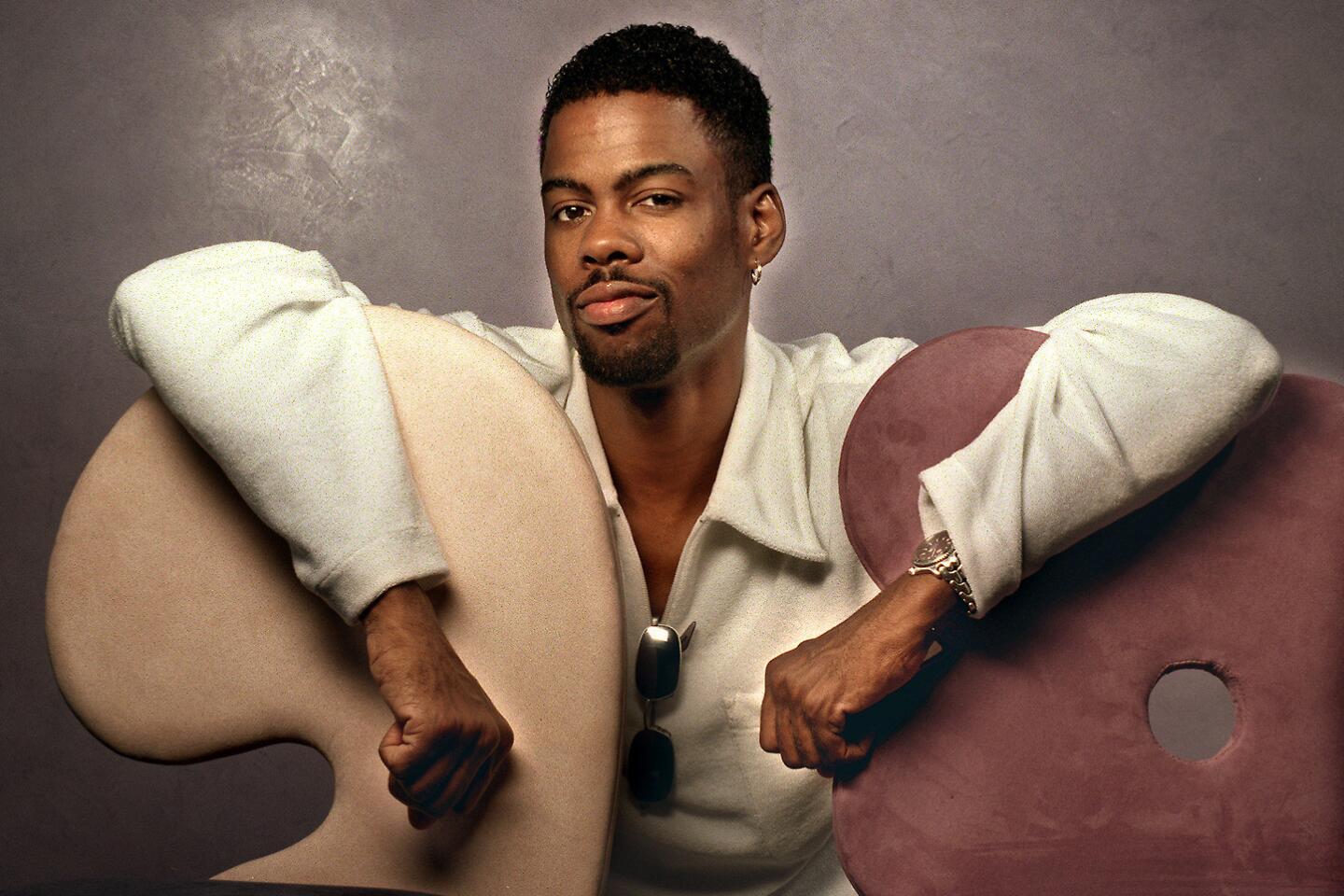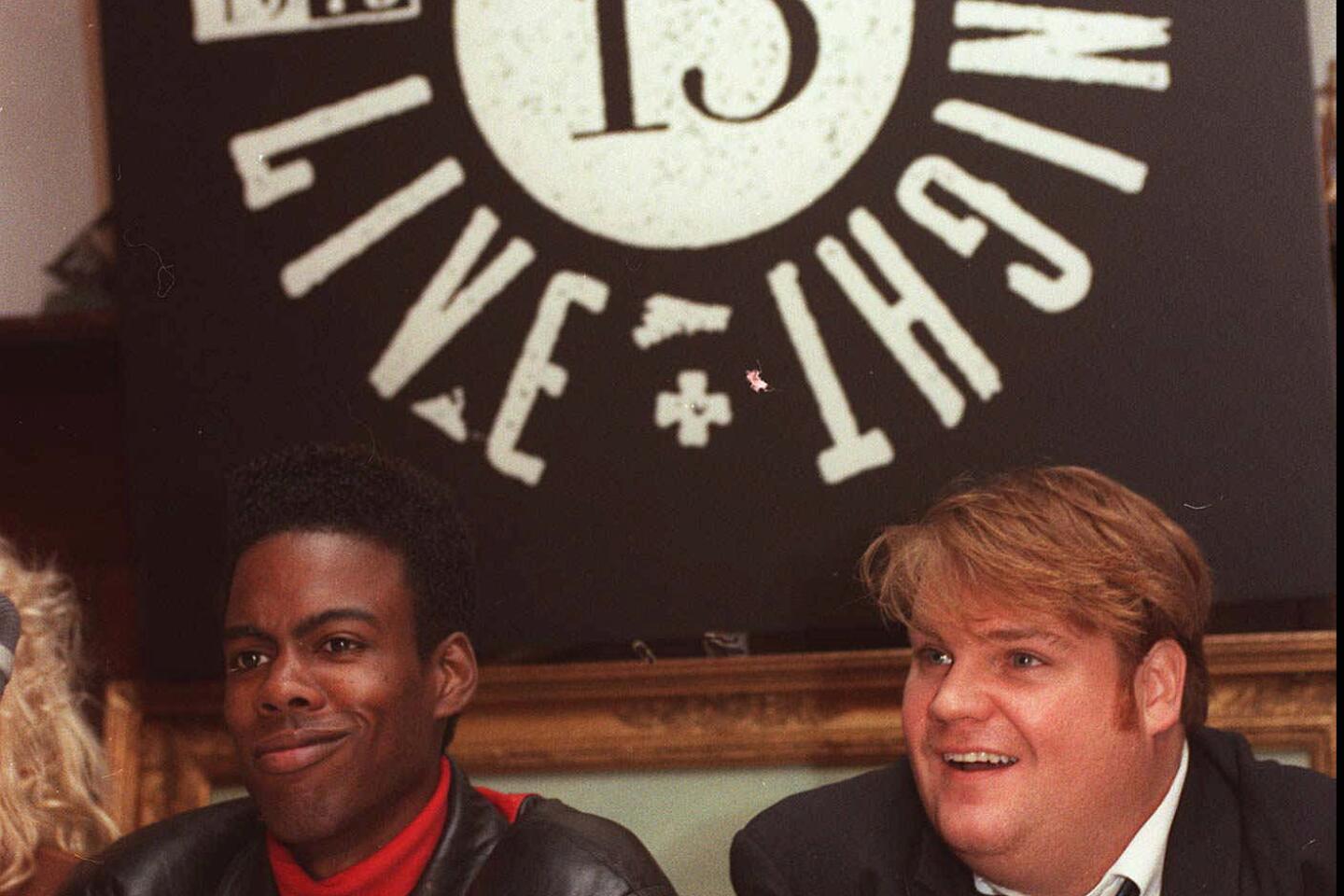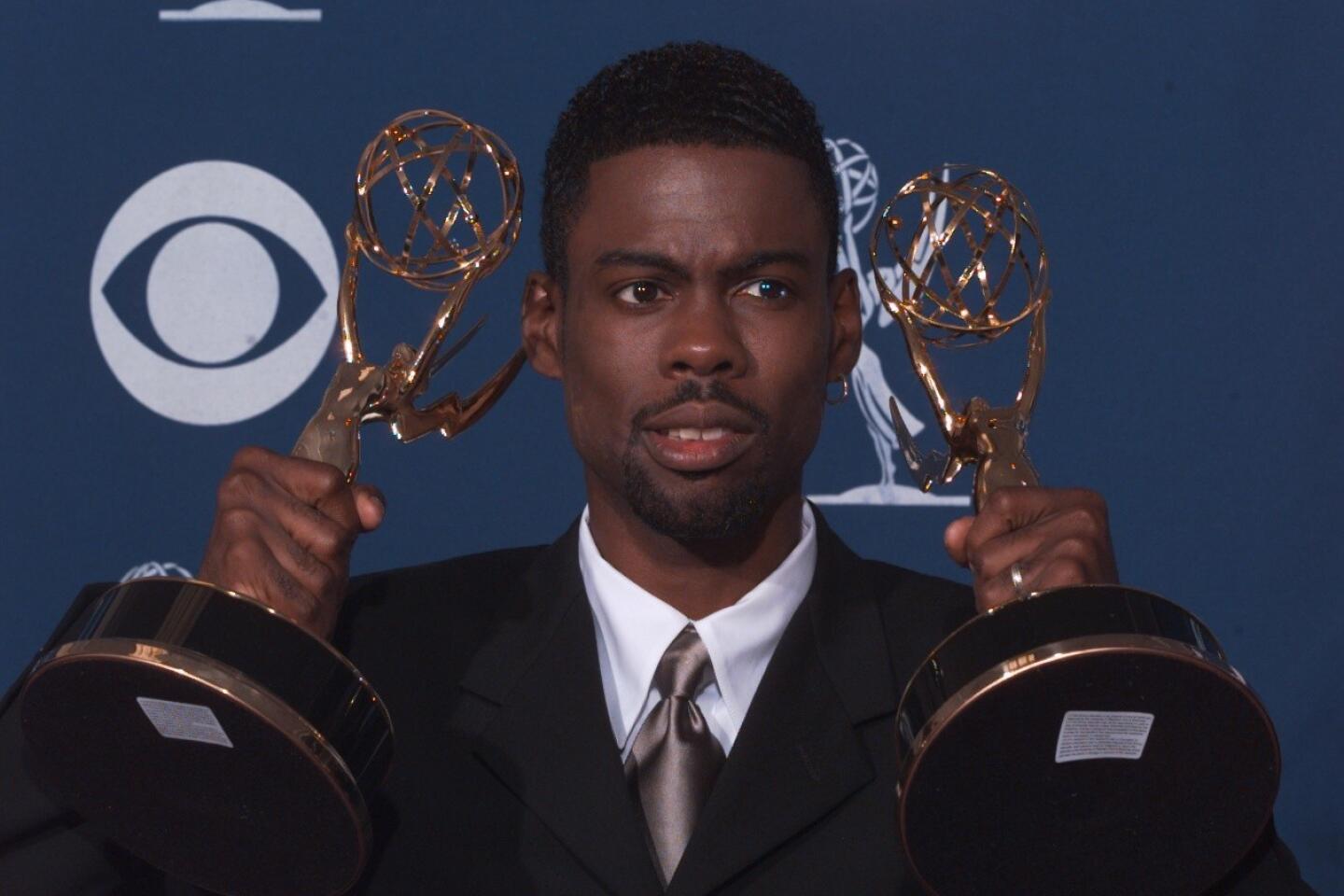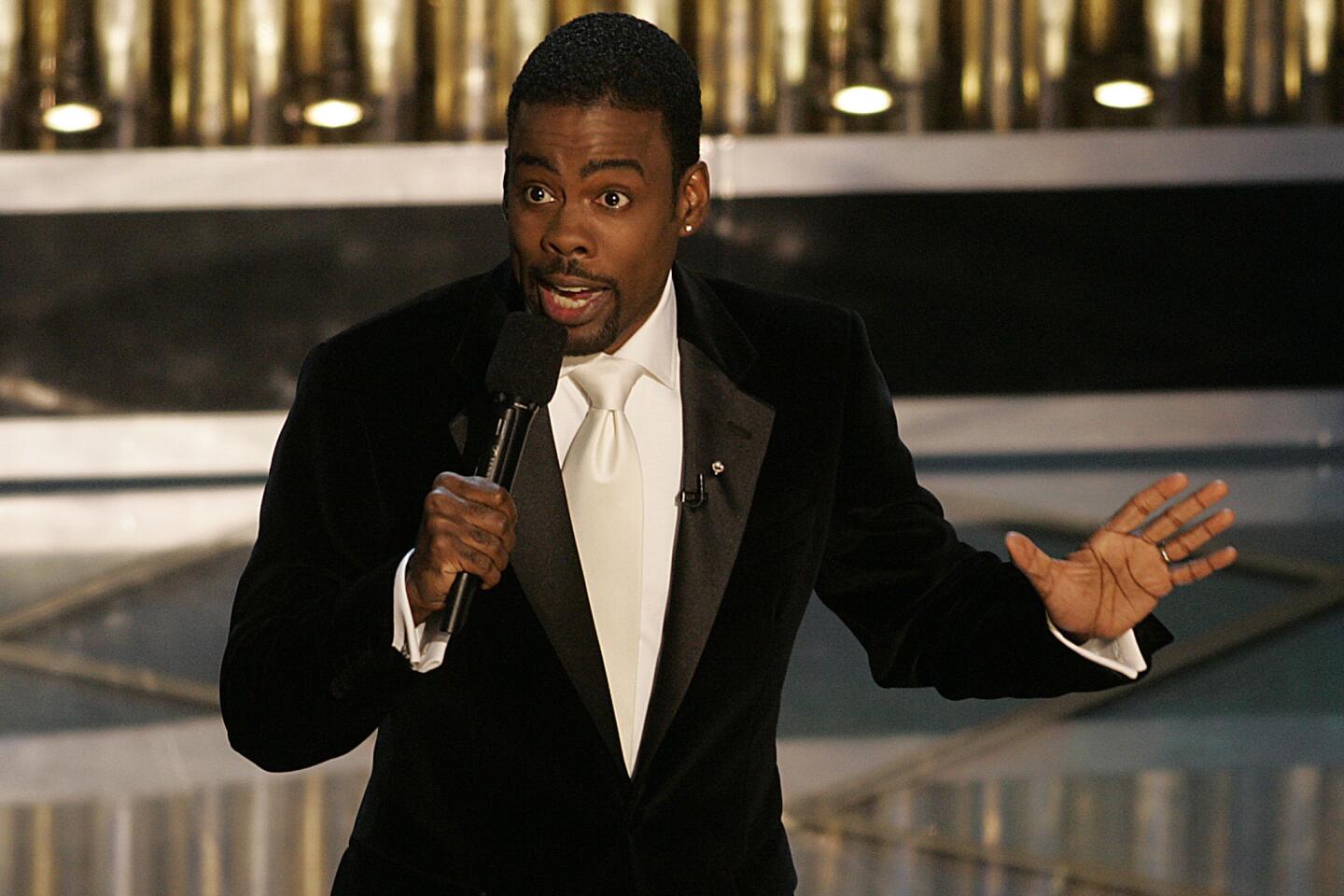The Oscars and Chris Rock: Will it work?
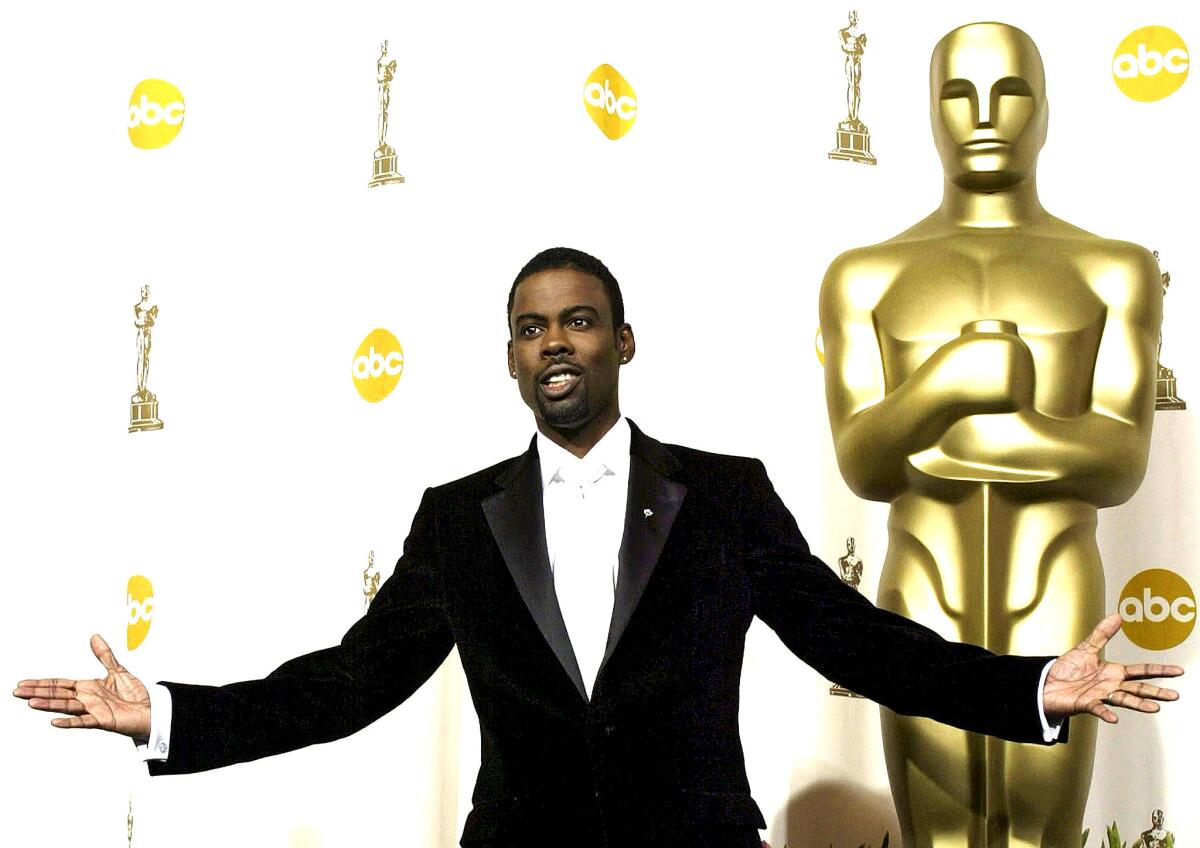
It’s possible actor and comedian Chris Rock’s repeat status helps, as it sometimes does (DeGeneres’ second go-round), or sometimes doesn’t (Jon Stewart’s follow-up turn).
- Share via
Chris Rock is hilarious, scabrous and provocative.
Which means he will have an especially tricky balancing act at the upcoming Academy Awards.
On Tuesday morning Rock was officially announced as the Oscars host for the 2016 show, a role he will serve in alongside producers David Hill and Reginald Hudlin.
“Chris Rock is truly the MVP of the entertainment industry,” the producers said in a statement.
“Chris may be best known as a stand-up comic, but we think of him as a creative innovator in many other ways. He is unafraid in his artistry,” added Motion Picture Academy Chief Executive Dawn Hudson.
SIGN UP for the free Indie Focus movies newsletter >>
Rock, who previously hosted the show in 2005, killed it on the awards circuit last year. He earned plaudits for his comic-in-crisis movie “Top Five” and made a number of seasonal appearances, including a scene-stealing turn at the National Board of Review ceremony, where his remarks were as sharply funny as these appearances get. (Sample line, regarding the Sony hack: “Scott Rudin is not a racist. Scott Rudin hates everybody.”) He also continued to show he’s right in the thick of a boundary-pushing zeitgeist when he directed Amy Schumer’s recent HBO special at the Apollo.
Whether that edginess will resonate in at the at-times thin-skinned Dolby Theatre room, however, is an open question. Pressing buttons, with either the assembled talent or on larger cultural issues, is what Rock is especially good at -- and what the Oscars are famously resistant to. Rock could tone it down, of course, but then he wouldn’t really be Chris Rock.
The performer’s first turn, though filled with comic gems, is often remembered for the onstage sparring with Sean Penn, who took umbrage at Rock’s take on the viability of Jude Law, of all people. Rock’s performance was beloved by his hard-core fans and many critics, but ended up on some lists of questionable award-show hosting turns.
And edgy didn’t go over so well at the Oscars in recent years with Seth MacFarlane or Neil Patrick Harris; more popular and well-received was the softer, selfie-taking precincts of Ellen DeGeneres.
Almost as important for ABC and producers as the Hollywood reaction are the audience numbers. The Oscars showed double-digit drops last year among total viewers and adults 18-49, part of a larger downward pattern in recent years, and the hope is that a new host and producers can stem the tide.
Rock does have some mainstream drawing power — possibly. His 2005 turn was a bridge of sorts from an era when many people watched the awards to an era when not so many people watched the awards. The roughly 42 million people who tuned in to his first show set a high mark for the eight years that followed, unbroken until DeGeneres’ telecast in 2014.
But Rock’s Oscars also showed a decline from what came before — dropping by about 1.5 million from the prior year and proving the fourth lowest total of the previous 15 years. (And one of the others year was the weird Iraq war-set ceremony of 2003.)
It’s possible his repeat status helps, as it sometimes does (DeGeneres’ second go-round), or sometimes doesn’t (Jon Stewart’s follow-up turn).
Rock also has a somewhat high-profile social-media media presence, with a fairly active Twitter account — but at 3.6 million followers, it’s well below those of Harris (19.4 million) and DeGeneres (48.7 million).
The truth is Rock, for all the edge and appeal he brings, is as much of a crapshoot as many of the other hosts who’ve taken the gig in recent years.
In every respect, of course, but one.
Rock is the rare person of color to host the Oscars — so rare he’s one of only two solo black hosts in the show’s history. (Whoopi Goldberg, a four-time host who last presided in 2002, is the other.)
In one sense, when it comes to racial inclusion, Hollywood has come a long way since Rock hosted.
Since the 2005 Oscars, a black man has won the directing prize for the first time when Steve McQueen took the statuette two years ago. Four black women have won acting awards in the years since Rock has hosted — compared to three who’d won in the entirety of Oscar history before that.
This year, there’s a black producer in Hudlin. And the academy has its first black president in its history under Cheryl Boone Isaacs. The group has sought to make strides to increase the number of minority members, after a Times study in 2012 found that membership was 94% white.
But Hollywood has sometimes taken what’s felt like a step back in this regard as well. Movies with large black casts still struggle to get made, particularly over a certain budget level, and prestige film in particular has a monochrome feel.
At the Oscars, the bellwether of said cinema, the past five years have seen a whiteout among the 20 acting nominees on two different occasions -- no person of minority status was nominated in either 2011 or 2015. (It hadn’t happened previously since 1998.) The most recent ceremony saw the snub of lead actor David Oyelowo, who many thought was a lock for a nomination for his lead role in “Selma.”
It remains to be seen whether this year proves different. There are relatively few movies with large black casts in the mix -- “Straight Outta Compton,” the summer hit about the rap group N.W.A, is one of the few contenders that could make a splash, and a number of experts have it on the bubble. (Rock, it should be noted, has not been shy about race issues within the industry, writing this candid assessment of black actors and Hollywood last year.)
Finally, it’s impossible to ignore the effects of social media. Since Rock hosted in 2005, Twitter and other platforms have risen, serving both as a welcome watchdog and, at times, an overly zealous bulwark against perceived offenses up on both sides of the race-relations aisle.
Which means that Rock’s performance, headline-grabbing as it was in 2005, will far be more scrutinized this year. And it means he’ll be vulnerable to claims he’s too soft on one side and too blunt-speaking on the other.
In short, what could be a very funny Oscars could also, to some of those observing it, be a very charged one. Rock is no doubt an artist, painting in some very choppy waters.
Twitter: @ZeitchikLAT
More to Read
Only good movies
Get the Indie Focus newsletter, Mark Olsen's weekly guide to the world of cinema.
You may occasionally receive promotional content from the Los Angeles Times.
